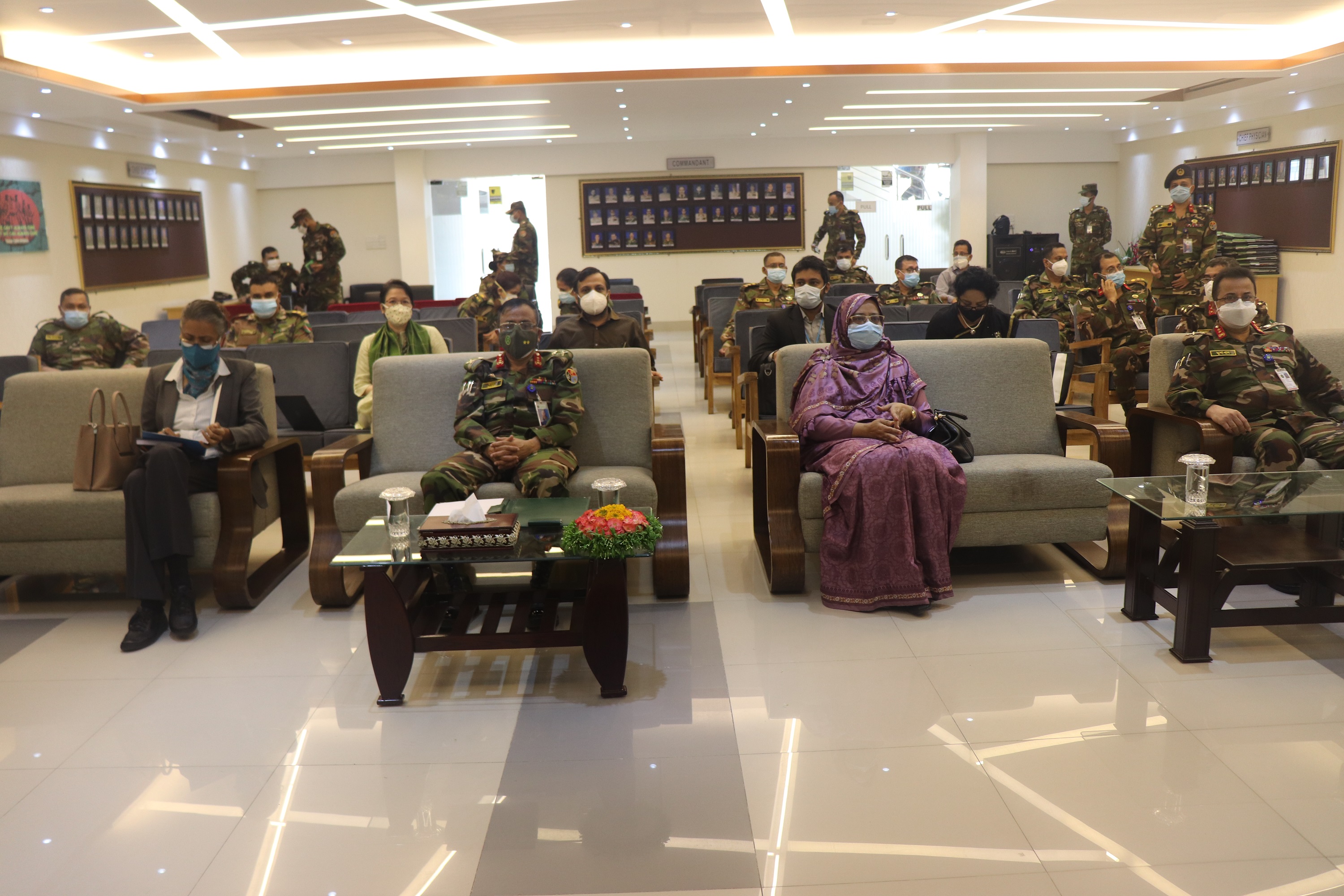National TB Control Program (NTP), supported by WHO, organized on 14 November a workshop on End TB strategy and the implementation of Public-Private Mix (PPM) approach with specialists from Combined Military Hospital (CMH). The second in a series of three similar events with the participation of defense medical specialists, the workshop was part of NTP’s efforts to expand multi-stakeholder engagement for TB control in Bangladesh.
“The development of the Multisectoral Accountability Framework on TB is an essential step to address the disease in a coordinated and efficient manner through systematic involvement of all relevant health care providers. This is particularly important as TB cannot be eliminated with the single effort of NTP and Ministry of Health, a multisectoral involvement is required”, said Dr. Bhupinder Aulakh, Deputy Representative of WHO in Bangladesh.
-major-general-md.-mahbubur-rahman-dg-dgms-offering-souvenir-to-dr.-aulakh.jpg?Status=Master&sfvrsn=ad8d7af8_11)
Major General Md. Mahbubur Rahman, DG DGMS, offering Souvenir to Dr. Aulakh on behalf of Bangladesh Army. Photo by WHO Bangladesh / Arefin Saki
Despite that Bangladesh met the 2020 target in reducing the mortality caused by TB, the infectious disease remains a major public health problem with 38,000 deaths in 2019. To reduce the TB burden in the country, Bangladesh committed to UN high-level meeting to further increase the capacity to diagnose and treat TB patients including drug-resistant TB and childhood TB.
As part of the increasing capacity efforts, NTP provided CMHs GeneXpert machines and logistics to diagnose and treat TB patients and the current workshop aims to increase coordination and strengthen the catch-up plan to diagnose more TB patients in CMHs.

CMH staff attending training. Photo by DGMS
However, due to COVID-19, the regular TB services have been hampered and according to WHO estimation, the TB incidence and mortality will increase due to disruption of services if there is no active catch-up plan. This highlights the importance of all relevant partners to be part of PPM and ensure enhanced access to TB screening and treatment.
“We are working with NTB to revise guidelines and country’s strategy to fight TB while employing efforts to maintain essential TB services during COVID 19 pandemic”, mentioned Dr. Mya Ngon, WHO Medical Officer for Communicable Disease.
The event, attended by 35 defense medical specialists, was chaired by Major General Md. Mahbubur Rahman, Director General, Directorate General of Medical Services and benefitted by the presence of Prof. Nasima Sultana, Additional Director General (Admin), Directorate General of Health Services as chief guest.
WHO remains committed to supporting the Government of Bangladesh to roll out the implementation of End TB strategy through a multisectoral approach for ensuring a coordinated and effective action against tuberculosis.
